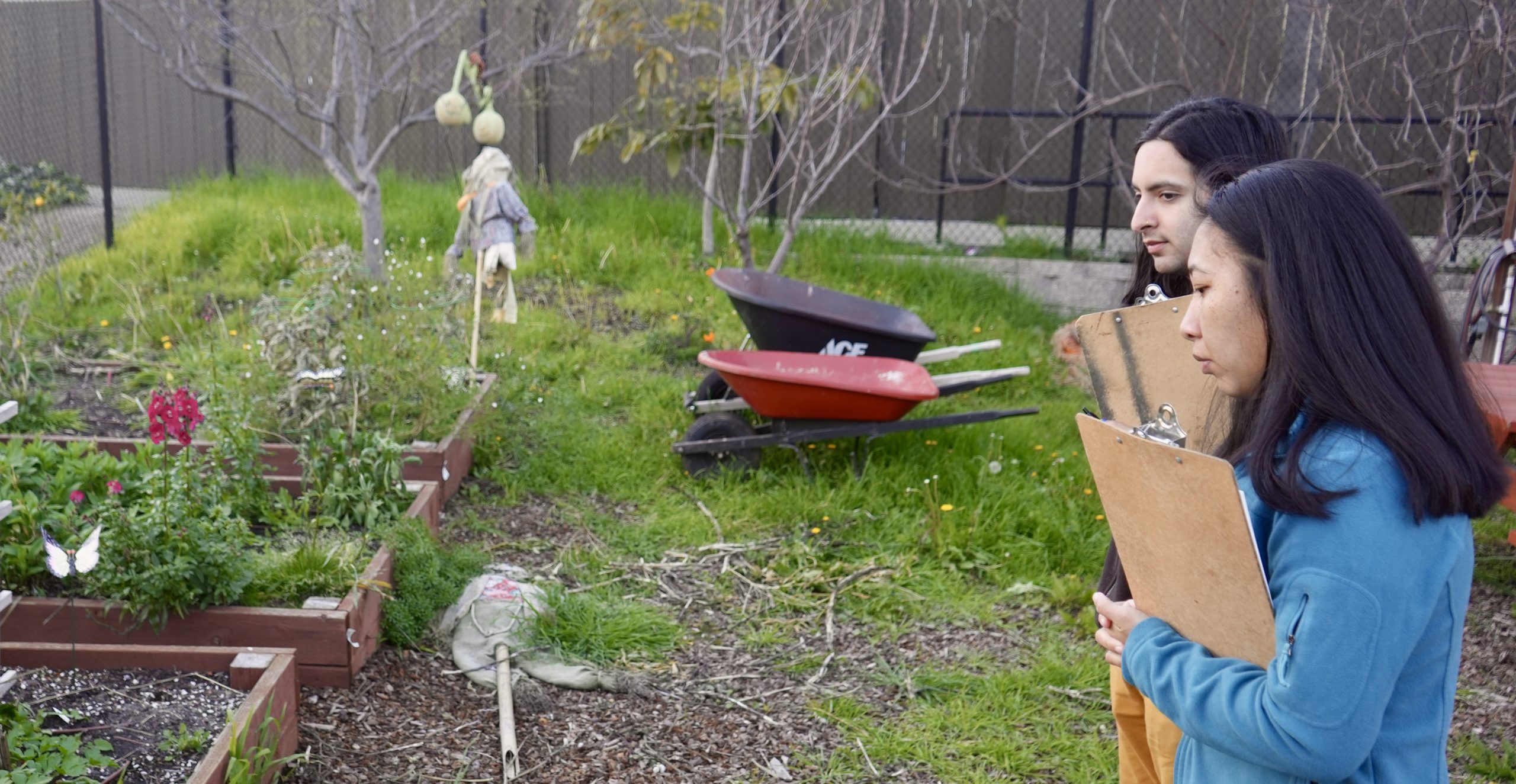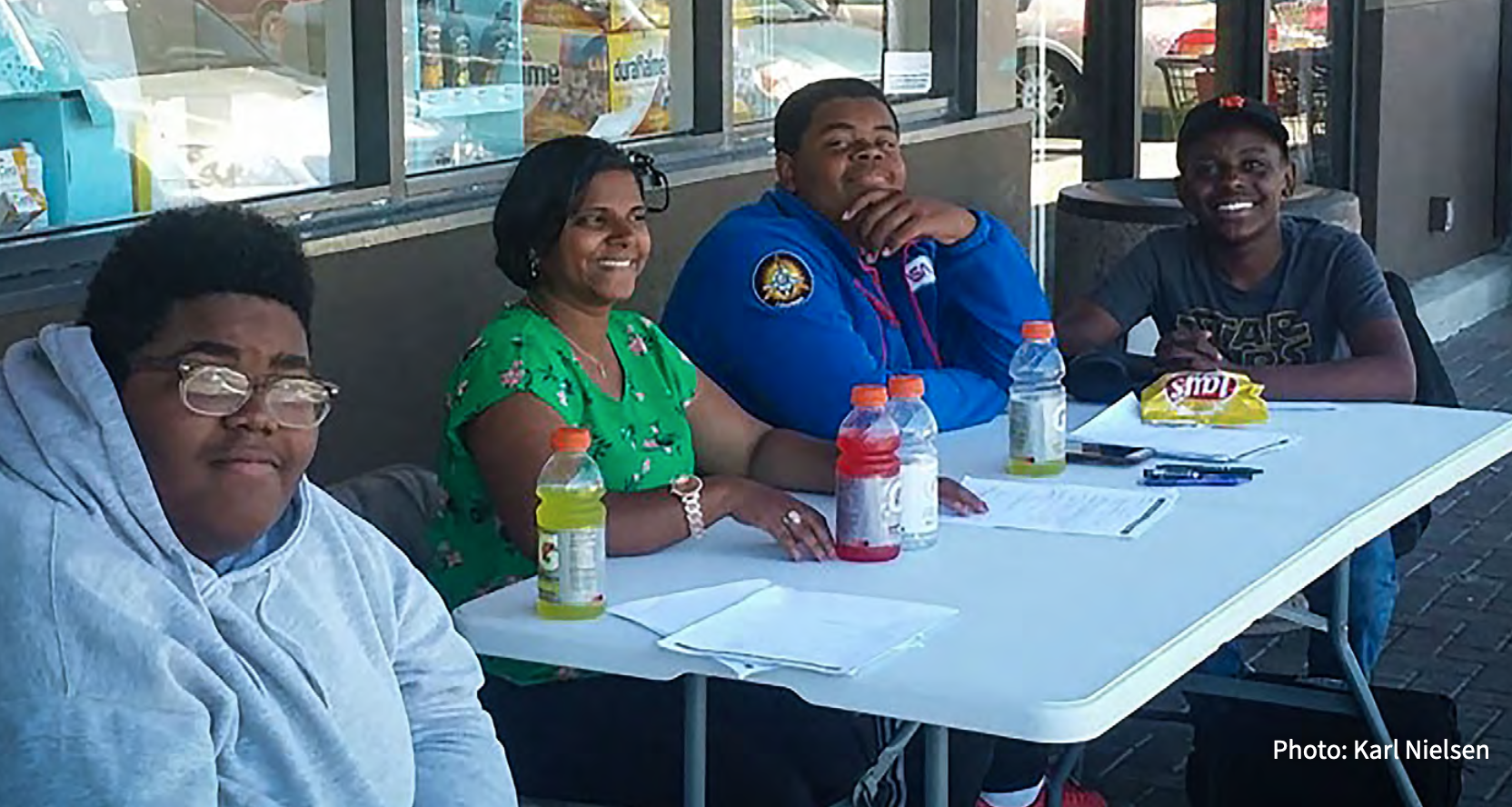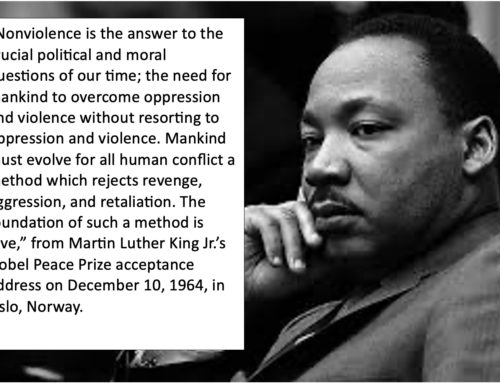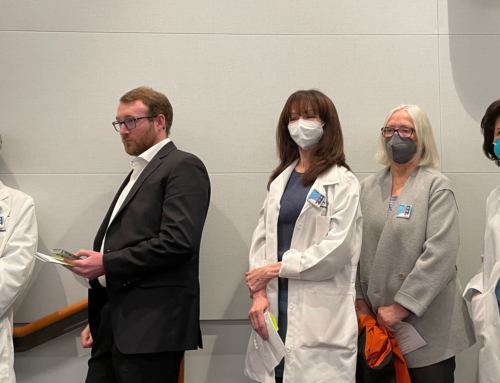March 2023
SF Bay PSR provides community-led projects with financial, administrative, and scientific support to honor our commitment to environmental justice organizations throughout the Bay Area.
Marin City Climate Resilience and Health Justice (MCCRHJ) is an African-American led environmental justice organization comprised of community members and allies advocating for climate resilience and health justice. Their work seeks to establish equitable inclusion in planning and community preparedness, as well as the equitable allocation of resources. MCCRHJ addresses crucial community issues including emergency preparedness (including flood and hazard mitigation planning), adaptation to climate change and sea level rise (including wetland restoration), and pollution (water, air, and soil quality). They plan and develop activities related to all of the above, while promoting community engagement, social equity, youth leadership development, and advocacy with governmental and regulatory agencies, political representatives, as well as other organizations as they relate to advancing equity in Marin City.
History and Disparities: Marin City is a historically disadvantaged and underserved community in Marin County, California. The negative health impacts tied to discriminatory and exclusive decision-making, policies, and practices have resulted in a highly disproportionate pollution burden. The area was developed to house people who worked at the Marinship factory during WWII. After the war, it was one of the only places where African Americans could live due to redlining. Though redlining was outlawed more than half a century ago, its harmful effects are still felt by residents of Marin City, as in many other redlined communities who continue to be the most impacted by pollution. Marin County overall currently ranks second in racial inequity in California – meaning they are second from the bottom regarding racial equity, and fourth from the bottom for racial disparity regarding proximity to hazardous waste sites, per the Advancement Project California.
LISTEN: Marin Community residents and organizers tell their story in this awesome video!

The Richmond Shoreline Alliance (RSA) came together to promote a healthy and accessible shoreline for all residents of Richmond, California. The RSA community has fought resiliently for over two decades—with support from scientists, engineers, lawyers, environmentalists, and health professionals—to secure the most health-protective cleanup of the Superfund-qualified AstraZeneca toxic waste site on Richmond’s southeast shoreline.
History: For a century, Stauffer Chemical Company manufactured pesticides, herbicides, and sulfuric acid at the 85-acre site, dumping tons of hazardous and radioactive waste on the shoreline. The site was acquired in the 1980s by Zeneca PLC, which later merged with pharmaceuticals giant AstraZeneca. Despite community objections, in 2019 the state agency tasked with cleanup oversight—the Department of Toxic Substances Control (DTSC)—approved a cleanup plan that requires removing only a fraction of the 550,000 cubic yards of contaminated soil. Equally alarming, the DTSC plan disregards the threat of climate-change induced sea level rise and groundwater infiltration. But based on DTSC’s authorization, in 2020 the Richmond City Council approved a proposal to build up to 4,000 housing units on the site, and the developer is moving forward with its plans.
Solutions: Honoring our commitment to partner with Bay Area environmental justice organizations, SF Bay PSR is fiscally sponsoring “RSA Healthy Environment,” a community education and capacity-building project in Crescent Park, a multifamily housing complex just across I-580 from the AstraZeneca site. READ MORE …
LISTEN: Richmond community members tell the story in their own words.
KQED: For a deeper understanding of the site and the struggle for a complete cleanup, please see this article.





